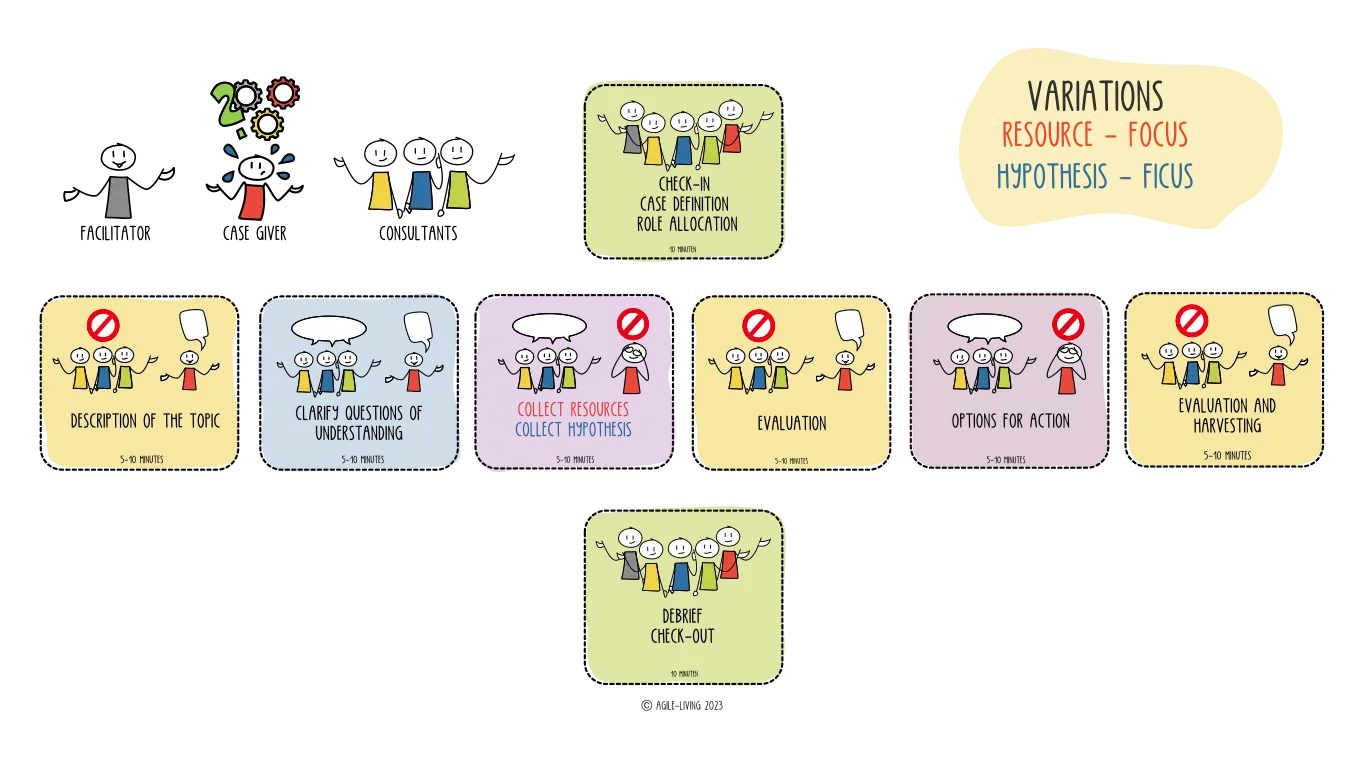

“I not only use the brain I have, but I also borrow what I can get.”
[Thomas Woodrow Wilson]
Peer counselling is a counselling session in a self-directed group with people of equal hierarchical status. The group counsels one member of the group at a time according to a defined procedure. The aim of counselling is to develop solutions to a question or problem from everyday working life or to help those seeking advice to overcome difficult professional situations.
The method was developed from various forms of peer counselling, such as the Balint groups for doctors. In the 1970s, collegial counselling was increasingly used with teachers. In the 1980s, a simple counselling structure was developed that allowed the group to discuss cases without the help of a psychologist. This gave rise to various forms of collegial counselling, which have become known as “Reflecting Team”, “Collegial Counselling and Supervision”, “Interversion”, “Collegial Supervision”, “Collegial Team Coaching”, “Cooperative Counselling” or “Leadership Group Coaching”. Tietz, Kim-Oliver: Kollegiale Beratung, Problemlösungen gemeinsam entwickeln, Rowohlt, 2003 provides a detailed description of collegial counselling.
Develop solutions for concrete questions and problems of everyday professional life
In-service support & reflection for leadership tasks
Support in transferring training content into everyday life
Counselling takes place on a collegial level and at eye level
All participants receive impulses and ideas for their own context
The personal exchange promotes the development and expansion of the professional network
Simple, cost-effective and practical method for counselling and further training
The necessary expertise should be available within the group to deal with the questions and problems.
If several participants in the group are personally affected by the problem, it is helpful to bring in an external moderator or coach.
Not suitable for private and personal problems or for topics that are taboo in the group
Necessary competences and experience for the question
A question or problem from everyday working life
A moderator who knows the process and can carry it out

The ideal group size for Collegial Consulting is 5-7 participants: 1 facilitator, 1 caseworker, and 3-5 consultants.
The process is guided by the facilitator and has clear time boxes that give structure and focus to the setting.
The time investment is 1.5-2 hours
As a vibrant part of the agile community, we offer free supervision for agile professionals and leaders.